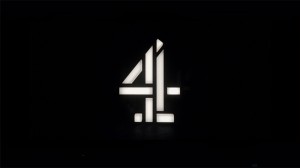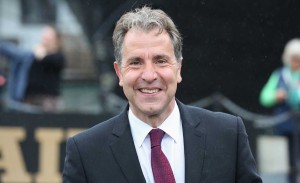Channel 4 is set to expand its Bristol creative hub following the government’s U-turn over controversial plans to privatise the broadcaster.
Culture Secretary Michele Donelan yesterday confirmed that the sale – a flagship policy of her predecessor Nadine Dorries – was being abandoned.
Instead, Channel 4 will be allowed to borrow more money to spend on creating its own programmes. 
Channel 4 had already pledged to invest an extra £5m in skills training and boosting spending in its regional base in Leeds and creative hubs in Bristol and Glasgow.
It also said it planned to double the number of staff based outside London to 600 – around half its total workforce.
Channel 4 opened its Bristol base in 2019 following a high-profile campaign to bring it to the city led by its creative industry in partnership with Mayor Marvin Rees and the city council.
The hub at Finzels Reach has since become such an important part of Bristol’s media sector, employing more than 20 people and developing strong links with programme makers in the city.
It has also spearheaded highly acclaimed work on diversity and inclusion in the city, including encouraging young people from different backgrounds into jobs in the creative sector. 
Among those most vocal in the anti-privatisation campaign was West of England Metro Mayor Dan Norris, pictured, who dismissed the plan as “ideologically driven cultural vandalism” and had voiced fears that the sale would have a serious knock-on effect on Bristol’s wider creative economy.
He said he was delighted with Ms Donelan’s decision to keep Channel 4 in public ownership.
“Finally, we have some 11th-hour common sense from the government, who have listened to those of us who have long argued against these short-sighted and damaging privatisation plans,” he said.
“This is a huge a victory for public service broadcasting and for the West of England. It would have been nothing less than an act of economic vandalism to flog Channel 4 off to the highest bidder.
“Channel 4 costs the taxpayer nothing, and gives us a thriving independent production sector, supporting thousands of jobs in my region.
“I’ve stood shoulder to shoulder with Channel 4 right from the beginning to keep it public, and keep it in the West of England.
“It’s a relief that the government has finally seen sense. I wholeheartedly welcome the Secretary of State’s decision to scrap these petty and harmful privatisation plans.”
While Channel 4 is publicly owned it receives no taxpayer cash, instead being funded entirely through its commercial activity. Last year it posted record revenues of £1bn – its strongest-ever financial performance.
The campaign to bring Channel 4 to Bristol stressed the city’s rich diversity and the talent within its communities – aspects which chimed with Channel 4 bosses as it reflected their own efforts to ensure that TV is more representative of the population and better reflects its viewers’ lives.
Channel 4 went on to broadcast its flagship news programme from Bristol as part of its ground-breaking Black to Front initiative two years ago, which aimed to showcase Black talent and improve representation within the TV industry.
Channel 4 said: “We welcome the government’s decision that Channel 4 will remain in public ownership.
“This decision provides a firm basis on which to establish the sustainable direction of Channel 4, safely in the hands of the British people.”






























